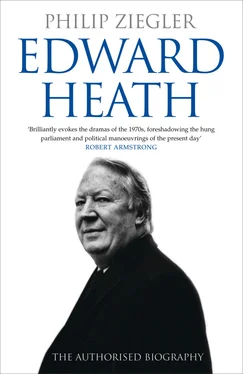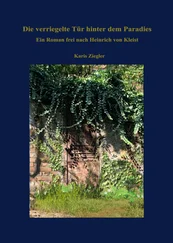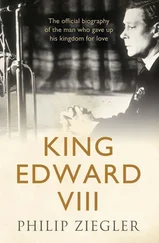Teddy went to Chatham House in the autumn of 1926. A combination of precocity and the date on which his birthday fell meant that he was far younger than the average age of his class: ten years five months, against thirteen years one month. In spite of this he managed to come eighth out of twenty-eight – ‘most promising’, said the headmaster. 17At no point in his time at Chatham House did he excel academically, though the occasional complaints – geography: ‘He must work very much harder’; French: ‘Much lacking in accuracy’ – were outweighed by enthusiastic comments or references to his comparative youth. His performance in general seems to have been creditable but somewhat graceless; in 1931 the English master remarked gloomily: ‘He must remember that he writes to be read and that the Examiner is, after all, only a human being.’ Being too young for his class proved a problem when most of his fellow pupils were about to take School Certificate. The headmaster noted that, though his work had been ‘most promising’ (a formula which he invoked seven or eight times during Teddy’s career at Chatham House), it would still be ‘tempting providence to let him sit this year. He is too immature for an exam of this standard.’ This evoked a protest from William Heath – inspired, one suspects, and possibly even written, by Teddy’s mother. Teddy, wrote William, was ‘most depressed at the thought of not being allowed to sit…He is young, I agree, but even the young sometimes exceed our expectations.’ He would undertake to have Teddy coached in French – his weakest subject – during the holidays. The headmaster gave way and Teddy did exceed expectations though not extravagantly so; he gained his School Certificate but had to wait another year for the Matriculation which opened the way to university.
Throughout these years it is clear that Teddy was considered by his parents, and up to a point by the boys and masters as well, as being outside the common run. Only rarely were these pretensions slapped down. Shortly after he arrived at Chatham House his father – once again, no doubt, put up to it by Mrs Heath – wrote to say that the school food did not agree with him. Could he please take his dinner at a nearby café? Only if he had a doctor’s certificate saying he needed a special diet, ruled the headmaster: ‘There is nothing in the school dinners which should be unsuitable for a boy in ordinary health.’ He was, however, excused football and cricket, on the grounds that such games might damage his hands and thus impair his music. He got on perfectly well with the other boys and was never bullied or ostracised, but he does not seem to have made close friends or to have spent much time visiting their houses. He led a ‘one-dimensional life’, recalled his contemporary, Keith Hunt. ‘He took no interest in games and played as rarely as possible. He often had special classes just for himself.’ 18His behaviour was almost always immaculate. Only once in his first three years did he suffer a detention, for some unspecified but, no doubt, innocuous crime. He was invariably punctual. Almost his only recorded offence was ‘running along a passage in which running is forbidden’. His penalty was self-inflicted; he banged his head so hard against a projecting pipe that he had to have several stitches in the resultant wound. ‘I cannot discover that anyone was to blame but the boy himself,’ wrote the headmaster severely, presumably fearing that, even in 1929, an indignant parent might sue the school for negligence. Why Teddy was running is not explained: it is depressingly likely that it was merely to ensure that he was in good time for the next class.
In part this remoteness from the preoccupations of his contemporaries must have been fostered by the fact that music was his favoured pastime, and that the instrument he chose inevitably took him away from his fellow schoolboys. But he did not exclusively practise on the organ, and music also brought him further into the life of Chatham House. He won the Belasco Prize for the piano and increasingly began to experiment with conducting. By the time he left he had established a unique position as a leader among the school’s musicians. ‘I cannot speak too highly of the tremendous amount of work he has done,’ recorded an awe-struck music master. ‘He has been a help to me and an inspiration to the boys. As a conductor of choirs he has been outstanding…I am grateful to him for all he has done for me.’ This note, giving the impression that the master viewed Teddy more as a collaborator than a pupil, marked all his reports during his triumphant last year at Chatham House. In their eyes – and not only in their eyes; in the last year he won a prize for character awarded by the votes of all the boys of the fifth and sixth forms – he was a remarkable force for good in the school. ‘It will be long before his ability, character, personality and leadership have failed to leave their mark on Coleman’s,’ testified a grateful housemaster. The headmaster was still more lavish in his panegyric: ‘The purity of his ideals, his loyalty to them, and his sense of duty have made him outstanding among boys who have helped build the School. That his mental and moral worth may have the reward they deserve is my wish for him.’
It would be easy to assume from all this that Teddy Heath was a ghastly little prig, who should have been shunned by any boy of spirit. He was not: on the contrary, the recollections of contemporaries make it clear that he was on the whole well-liked as well as respected. Inevitably he was prominent among the school prefects: he was ‘a bit of a stickler’, one master remembered. ‘He was very down on kids who had their hands in their trouser pockets, or weren’t behaving well in the street in their school cap and blazer. He thought that breaking a school rule amounted to disloyalty to the school.’ 19But though he was allowed to use a gym-shoe to beat recalcitrant schoolboys, he rarely availed himself of the opportunity. ‘Discipline and organisation,’ he told a television interviewer in 1998, were of paramount importance, but need not involve harsh rule. ‘I carried out my responsibilities, of course,’ he replied loftily, when asked if he had often resorted to physical punishment. His popularity was established when the school held a mock election in January 1935 to choose one of the boys as prime minister. Teddy stood as the national government candidate and fought an enterprising campaign: persuading the local MP to write a letter in his support and taking advantage of a sudden snow storm to arrive early at school and tramp out a gigantic ‘VOTE FOR HEATH’ on the lawn in front of the main entrance. He won a landslide victory. 20
The energy he spent on enterprises of this kind slightly alarmed the headmaster. ‘He must not jeopardise his own interests by giving too much time to sidelines – either in or out of school,’ warned Mr Norman. As well as music, Teddy in his last two or three years proved an enthusiastic actor, playing important roles in most of the school’s productions and featuring as the Archangel Gabriel in the annual nativity play. He also took eagerly to debating, proposing successfully, at various times, that sweepstakes, Sunday cinemas and capital punishment should be abolished and that the House would, in defiance of the recent vote in the Oxford Union, be prepared to fight for King and Country. ‘Its present flourishing condition is largely due to his efforts,’ the master in charge of the Debating Society appreciatively recorded.
Another extramural activity which profoundly influenced his thinking was a school trip to Paris in the spring of 1931. ‘It was the most exciting event of my life so far,’ wrote Heath some forty years later. ‘It was this which embedded in me a lifelong curiosity about every other part of the world and a determination to see for myself before I formed judgments about other people’s customs, traditions and way of life.’ 21This somewhat portentous declaration perhaps overrates the significance for a fifteen-year-old schoolboy of a brief shuffle round the more obvious sights of Paris leavened by a furtive escapade to the Folies Bergère. In fact the expedition was more memorable for Teddy because it included his first visit to an opera, Carmen at the Opéra Comique. This experience heralded an addiction to opera-going which persisted throughout his life. The Parisian trip, however, failed to herald any similar addiction to the French language; Heath’s French remained appalling, in accent, syntax and vocabulary, and some of the most important conversations of his life had to be conducted through an interpreter.
Читать дальше












